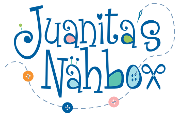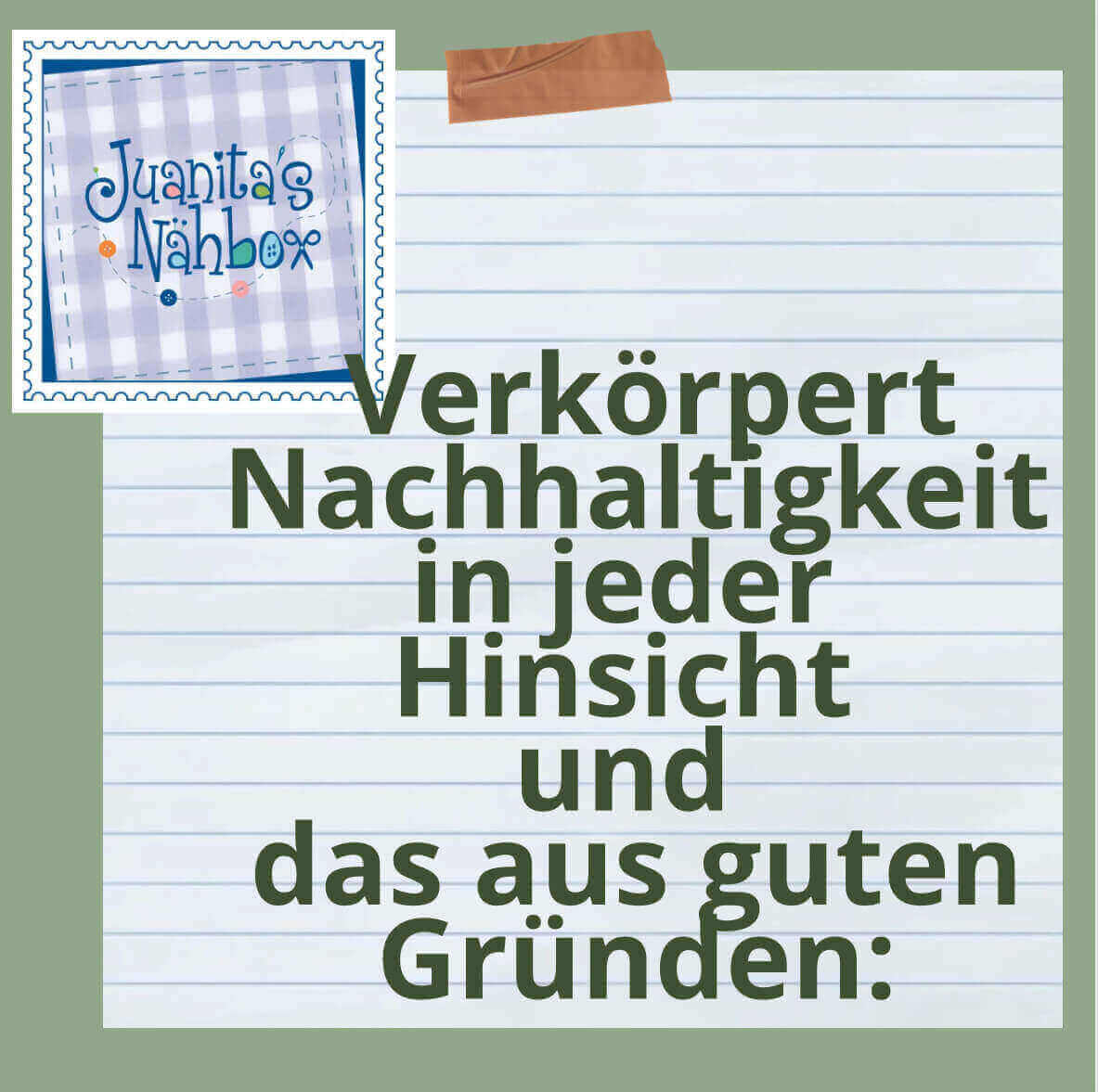
Juanita’s Nähbox embodies sustainability in every way, and for good reasons
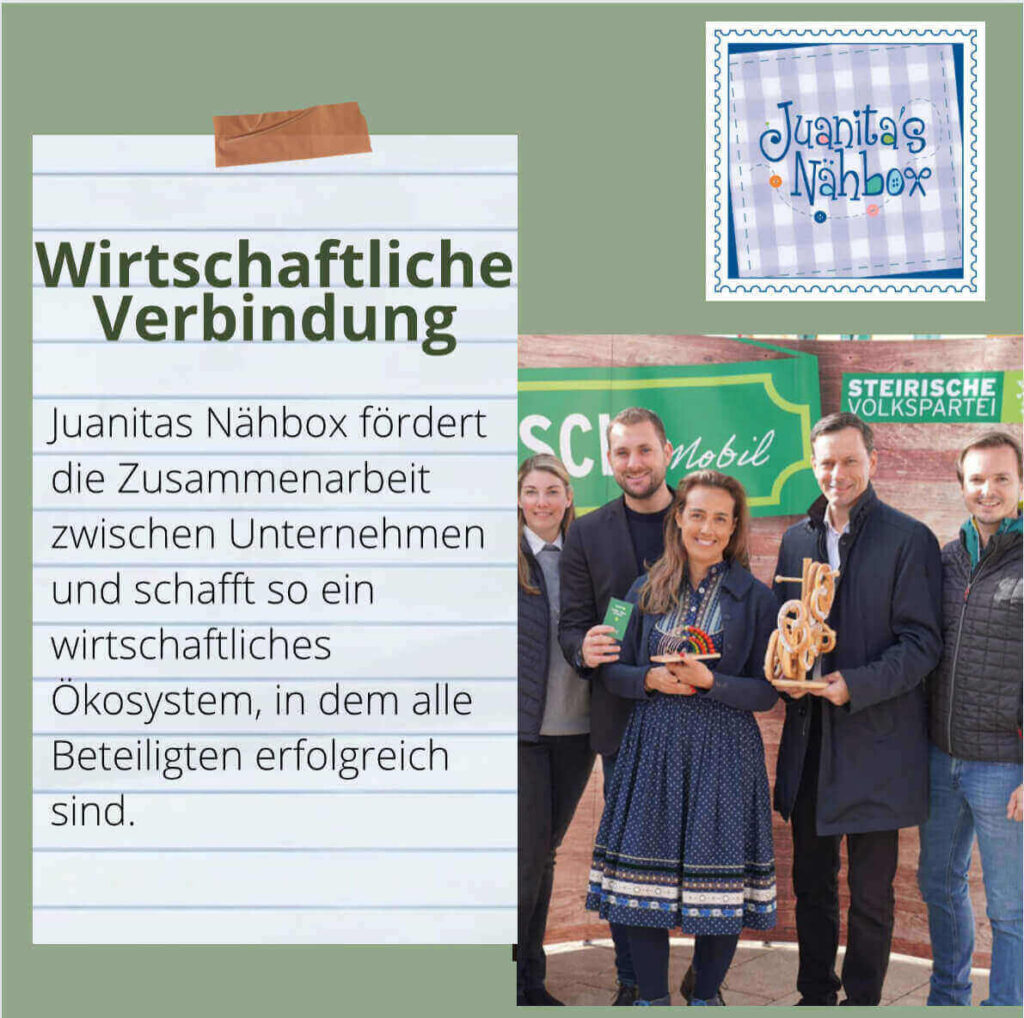
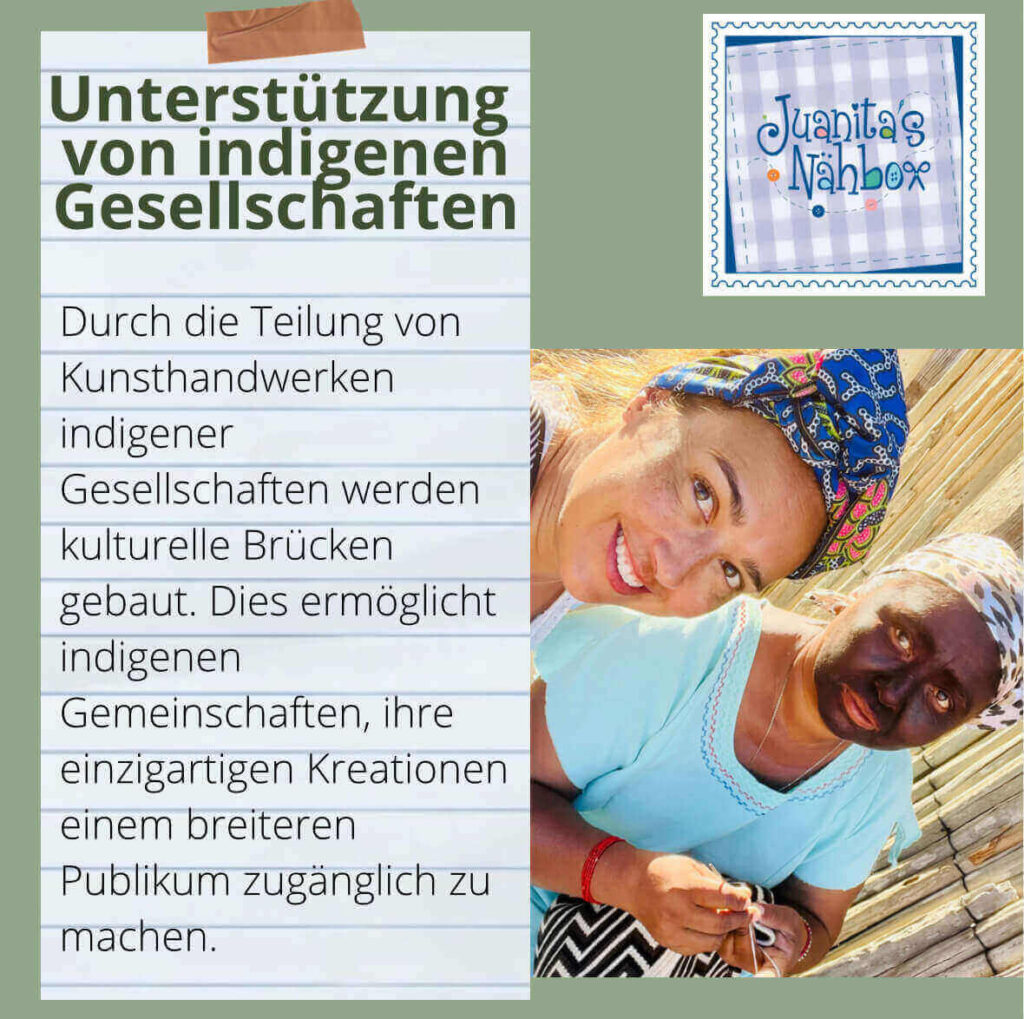
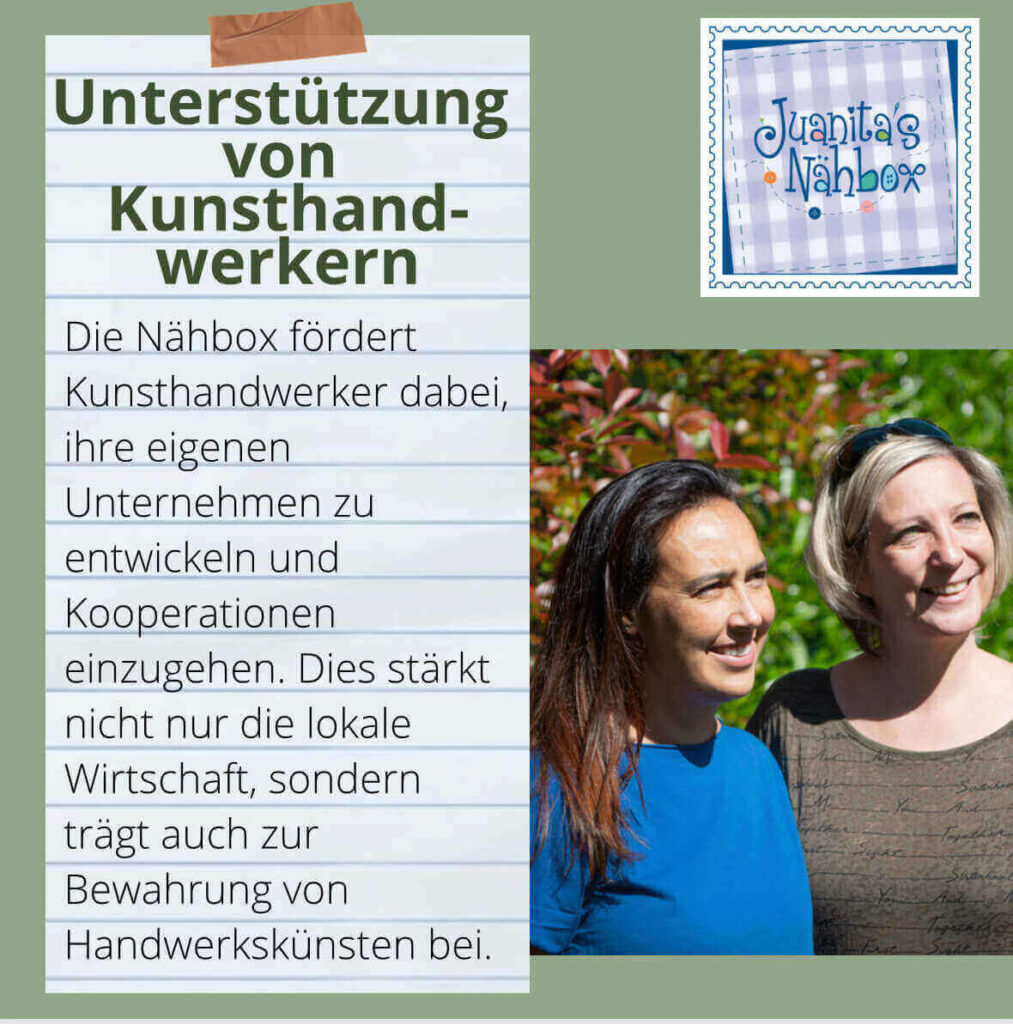
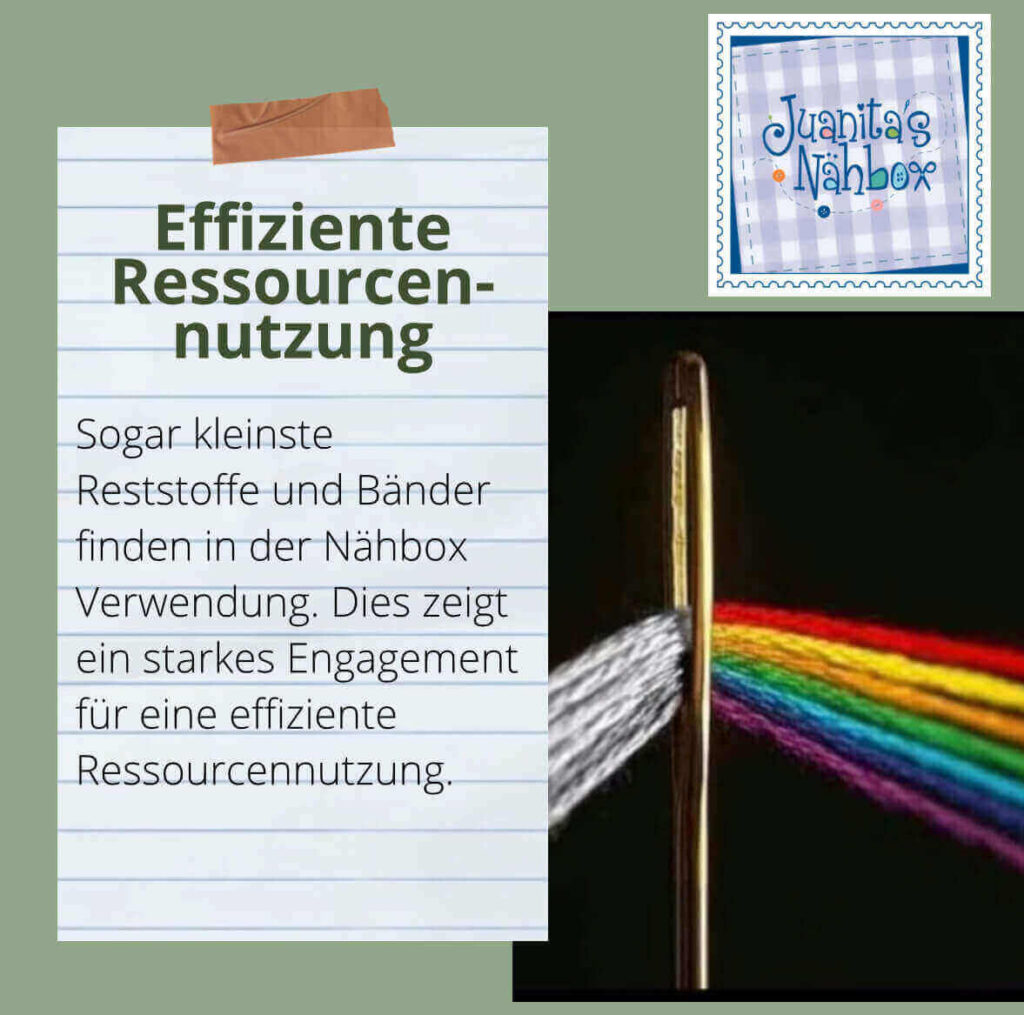
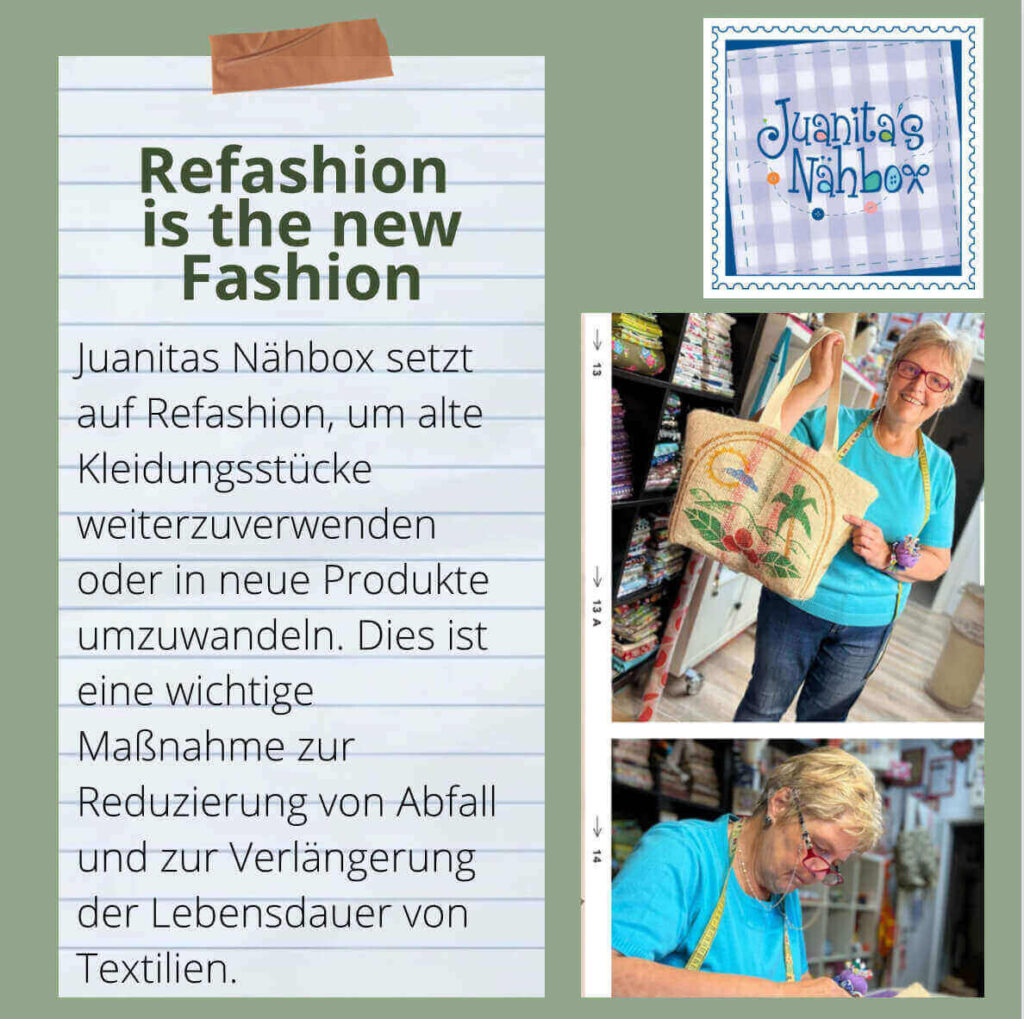
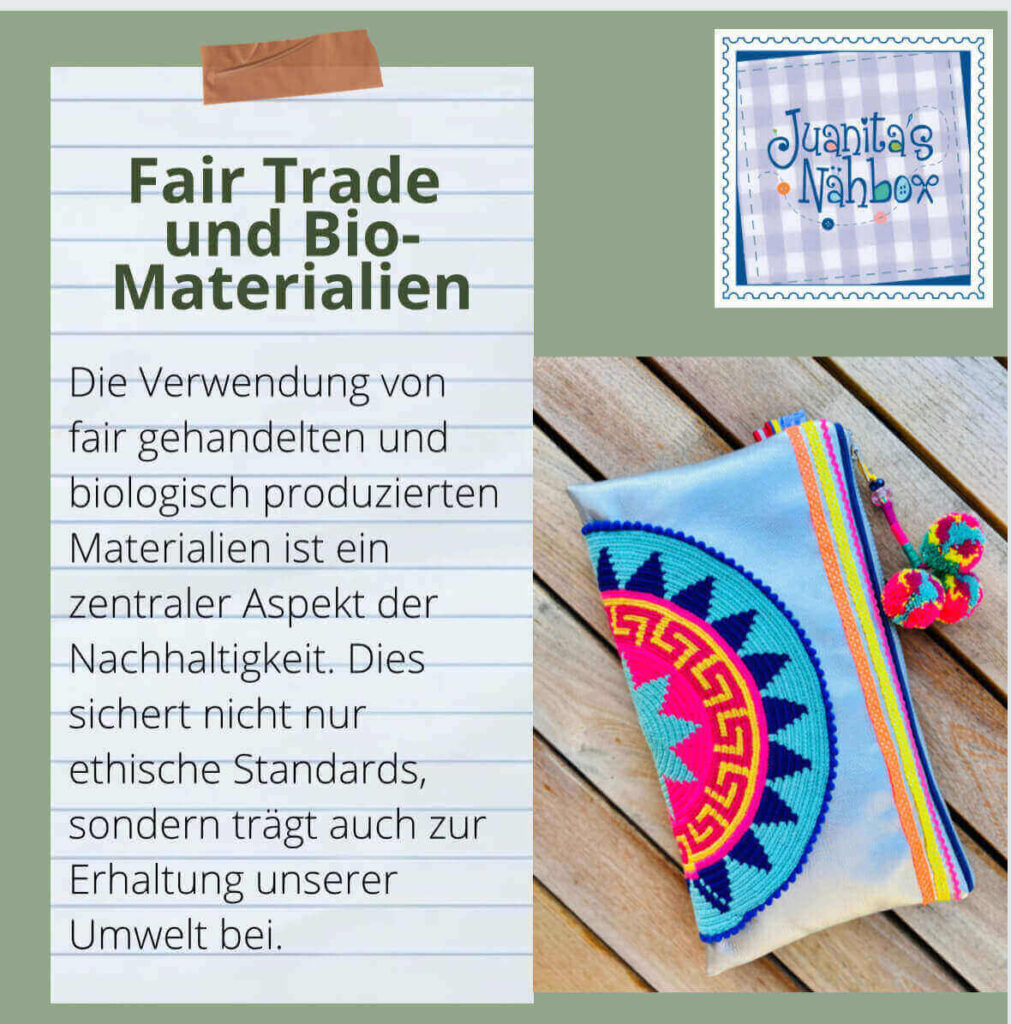
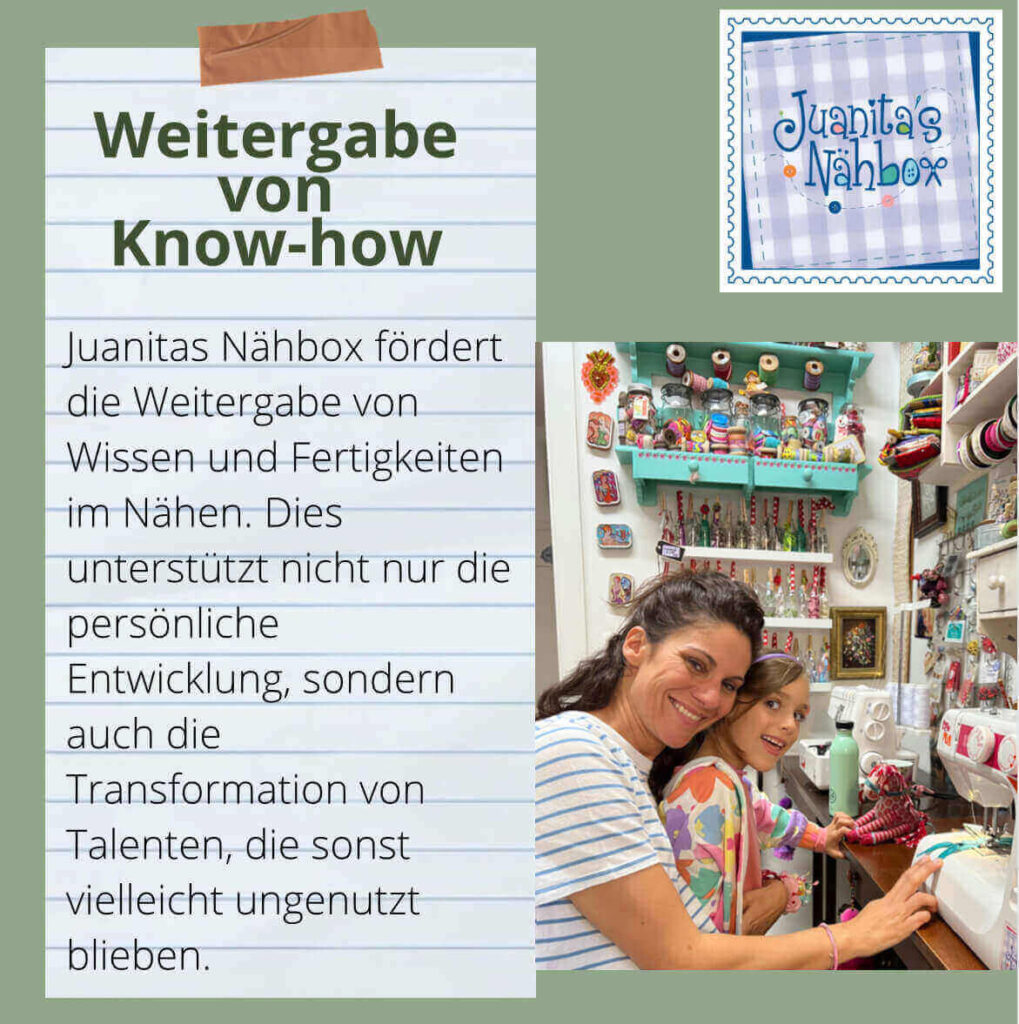
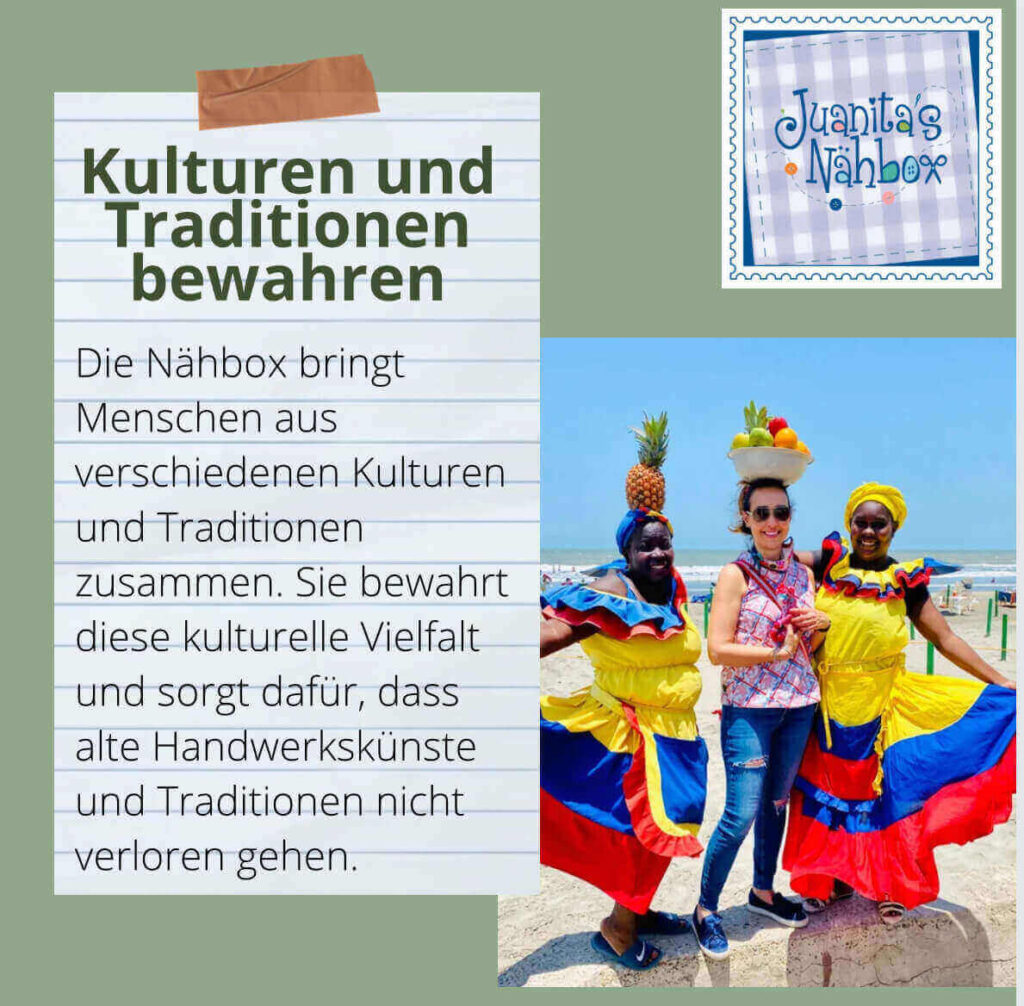
1. **Preserving cultures and traditions:** The Sewing Box brings together people from different cultures and traditions. It preserves this cultural diversity and ensures that old crafts and traditions are not lost.
2. **Sharing know-how:** Juanita’s Sewing Box promotes the sharing of knowledge and skills in sewing. This supports not only personal development, but also the transformation of talents that might otherwise go unused.
3. **Fair Trade and Organic Materials:** The use of fair trade and organically produced materials is a key aspect of sustainability. This not only ensures ethical standards, but also helps preserve our environment.
4. **Refashion:** Juanita’s sewing box relies on refashion to reuse old garments or transform them into new products. This is an important measure to reduce waste and extend the life of textiles.
5 **Efficient use of resources:** Even the smallest residual materials and tapes are used in the sewing box. This shows a strong commitment to efficient resource use.
6. **Supporting artisans:** The Sewing Box encourages artisans to develop their own businesses and enter into collaborations. This not only strengthens the local economy, but also contributes to the preservation of crafts.
7 **Supporting Indigenous Societies:** Cultural bridges are built through the sharing of indigenous societies’ handicrafts. This allows indigenous communities to share their unique creations with a wider audience.
8 **Economic Connection:** Juanita’s Nähbox fosters collaboration between businesses, creating an economic ecosystem in which all participants thrive.
Overall, Juanita’s Sewing Box is a prime example of sustainable action that links culture, social responsibility and economic progress. It contributes to creating a world where all aspects of life can exist in harmony.
